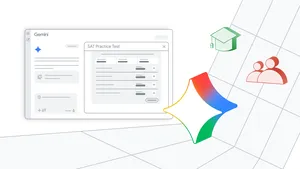VR Labs open doors of opportunity for STEM students

For students pursuing STEM degrees like biology, hands-on time in a lab can be as essential as time spent in the lecture hall or library. In fact, for many science-based degrees, it’s required. But getting access to a lab isn’t always easy. Many students don't live close enough to a lab facility or a university that offers their degree of choice. Others find it hard to get enough lab time because student demand is too high or their school can't afford to provide unlimited access.
Through its ability to take people anywhere, virtual reality can be a powerful resource for students who otherwise would not have access to the lab time they need to complete their degrees. We partnered with science education company Labster to create more than 30 virtual labs on the Daydream platform, where students can do their lab work in VR without having to walk, drive, or fly to a campus. These VR labs can be particularly useful to students and faculty at the rapidly-growing number of schools that offer online science degrees.
Earlier this month, students in Arizona State University’s online B.S. in Biological Sciences program began working in these virtual labs for full course credit. Soon students at the University of Texas at San Antonio, McMaster University, and other institutions across North America and Europe will be able to do their lab work in VR as well.
Using Daydream View or the Lenovo Mirage Solo with Daydream, students can do things that previously necessitated a physical presence in a lab, like examining organisms under a microscope and sequencing DNA. They can also do things that wouldn’t be possible in the physical world, like seeing and manipulating DNA at the molecular level and visiting Astakos IV, a newly discovered exoplanet being explored as a potential habitat for human beings.

Because there’s no time limit, students can review theories, concepts, and techniques as many times as they want. In addition, students receive personalized feedback in the app to help them understand which concepts they need to review, and which techniques need more practice.
We’re hoping to make the virtual lab experience available to more students worldwide, including undergraduates, graduate students, and even high schoolers.

If you’d like to bring the virtual lab experience to your school, you can learn more at labster.com/vr.






